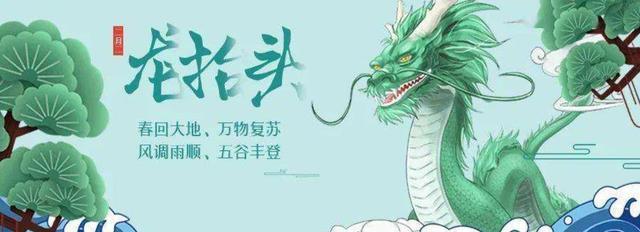
When it comes to "dragon head", many people are prone to think of feudal superstitions, in fact, this statement originated from astronomy in ancient times. In ancient times, the reference for observing celestial phenomena was the twenty-eight groups of stars near the ecliptic equator, and the well-known twenty-eight houses were their trajectories and positions at different times. Because the four sides of the sun, moon, and five stars are surrounded by them, it is like the living place of the sun, moon, and five stars, so it is called "suku". Then according to their position, they are divided into "four elephants", each "elephant" is composed of 7 houses, such as the image of the oriental dragon is composed of horns, kang, xenon, room, heart, tail, and ji seven houses, each of which represents a different part of the dragon.
Among them, the horned house represents the dragon head, and the seven dragon residences in the winter are hidden under the northern horizon, and in mid-spring, the location of the horned house can be gradually seen on the eastern horizon, because the body represented by the other six houses is still hidden below the horizon, only the horn is gradually revealed, and the "dragon looks up" is derived from this. Usually around the second day of the first month of February, but because of the "precession", the actual time of the "dragon looking up" will be delayed, which shows that there is no feudal superstition. However, the folk have produced a variety of colorful activities because of this phenomenon, among which naturally there is an indispensable superstitious component of celestial worship.
Three things to avoid
Many astronomical phenomena are still difficult to explain reasonably, and the ancients were more reverent, any changes in the wind and clouds have been endowed with divinity, and the "dragon looking up" that was originally an astronomical term is also more taboo because of the relationship between dragons. The first thing that cannot be done is needlework, believing that moving needle and thread on this day will hurt the dragon's eye and thus cause disaster. The second thing that cannot be done is to carry water, the dragon has always been considered to be the god in charge of cloud rain, and on this day carrying water will disturb the dragon's movements, thus causing disasters. The last thing you can't do is to build a house and rammer and grind the surface, thinking that doing this on this special day will hurt the dragon head, which is unlucky.
Eat three things
The most popular special festival is the holiday diet of the day, the first thing to eat on this day is noodles, because noodles have a very appropriate name "dragon's whisker noodles", so the ancients believed that eating dragon's whisker noodles on this day can please the color head. The second thing to eat is dumplings, and the dumplings on this day should be called "dragon ears" and "dragon horns"; the third thing to eat is pancakes and green onion cakes, which the ancients called "dragon scale cake" and "torn dragon skin". In addition, each place also has its own customs, in short, to take a symbol and meaning related to the dragon, after all, "dragon" has always been the totem of the Chinese nation, praying for the blessing of the dragon is the most common wish of the sons and daughters of China.
Do three things
In addition to eating, there are many lively activities on this day, the most common of which is first of all "shaving the dragon's head". Many adults choose to give their children haircuts on this day, and the ancients called shaving their "happy heads", which is also hoping that the dragon will look up and descend auspiciously, bless the child's healthy growth, and the dragon will leap and leap. The second is "dragon qi", because February is called the dragon moon in the earth branch, and the ancients believed that the dragon of the moon looked up on this day and went out to the east at the time of the dragon to absorb the dragon qi by taking a deep breath, so that the stars could shine high. The last one is to start writing, especially now that computers and mobile phones are normalized, many words do not know how to write for a while. According to legend, the birthday of the god Wenchang is the third day of the first month of February, and the god Of Wenchang is the god who dominates the name of the gods, and on the day when the dragon looks up, the child can write to the gods and immortals in advance, and can also take the auspicious omen of the dragon's head, killing two birds with one stone. Some places also choose the third day of the first month of February, this ceremony is very important in ancient times, and it is regarded as the first great gift of life called the opening ceremony. Adults should dress and light cinnabar for their children, and pray that the gods will bless the children with clear eyes and clear hearts throughout their lives.
To this day, traditional festivals have been precipitated by history, and their essence has been passed down. The various superstitious taboos of the dragon's head have long disappeared, but the resulting festive food and cultural connotations are still timeless and evocative. In particular, the scientific knowledge derived from astronomy and the worship of dragons are still worthy of our continued research, without the help of scientific instruments such as computers and telescopes, relying on the experience of the observation and summary and practice of the ancients from generations of naked-eyed mortals, but they can guide people's lives for thousands of years, of which wisdom is still worth carrying forward.